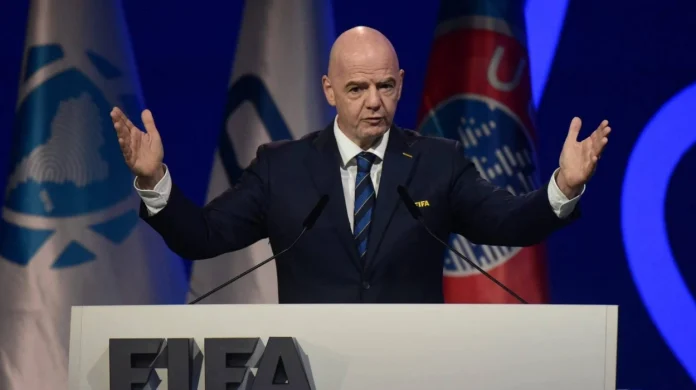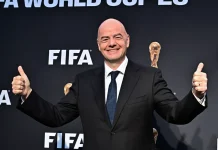The discipline that FIFA has shown in the 2026 world cup qualifiers is an indicator of its strong resolve to enforce its regulations. In 2025, multiple national teams were sent 3-0 losses as a result of fielding an ineligible player, although the infraction was mostly a result of administrative oversight, contrary to a deliberate misbehavior. These sanctions directly and permanently affect the qualifying rounds which are particularly high stakes under the new 48-team format with more qualification period lengthening and pressure on smaller footballing nations increasing.
The main tenet of such enforcement is safeguarding fair competition. FIFA points out that all the 211 member associations are subject to the same rules and that through observing those rules this guarantees a level playing field. The 2026 format has multi-layered levels, such as regional playoffs and inter-confederation routes. In this sense, any suspected violation, even a seemingly small violation can pervert the integrity of the tournament. But though the justification is based upon consistency, the overall effect of this punitive action shows imbalances in the structure.
The disproportionate impact on developing football federations
The low-income countries have national football associations that tend to have a weak administrative capacity. When it comes to maintaining eligibility reporting to the maintenance of international transfers and even the status of contracts, compliance with FIFA regulatory framework demands are frequently beyond the means of federations whose budgets are small. These deficiencies are further enhanced by poor digital infrastructure and staff shortages, which result in regular occurrences of unintentional violations.
In 2025, a number of African and Caribbean teams had their qualification efforts derailed not by the performance on the pitch but clerical mistakes with regards to registering the players. Although FIFA has insisted that breaches of the rules should be subject to punishment, such incidents demonstrate that the weight of complying with rules may be more on federations that do not have a strong institutional base. The imposition of the same sanctions on an immeasurably disproportionate administrative situation asks hard questions on the issue of fairness and proportionality.
The emotional and developmental toll
To players who are part of a country at the fringes of the world of football, qualification programs are frequently seen as one of the few occasions when the players acquire exposure, local investment is promoted and a sense of national pride is cultivated in the population. When a loss is caused by the off-field infractions that overturned the results on the field, the loss is not only technical but also highly demoralizing. Youth development projects, grassroot action and even state funding to football programs might lose momentum when the nationalistic initiative is overturned in public.
The draconian punishment by FIFA in the areas where football is crucial in social fabric may have a long-term developmental effect. Opponents have contended that such sanctions not only hinder competition, but also suffocate developments in the areas where football is a major source of hope and goal.
Balancing enforcement with global football development
The present system of governance at FIFA dwells on the concept of zero-tolerance. This has been the practice in all cases, irrespective of context and intent. Although it is a deterrent to manipulation or fraud, its strictness has been a topic of debate on whether the organization is doing enough to determine the motives of infractions perpetrated by malicious intent and unwanted administrative mistakes.
Critics of FIFA have also identified that FIFA lacks avenues of appeal or contextual negotiation in its disciplinary practices. This, in effect, limits the room to proportional reactions particularly in instances where developing countries with missteps are not based on erroneous acts but structural constraints.
The case for a capacity-building approach
A more adaptive regulatory framework could balance integrity enforcement with support mechanisms tailored to member associations with known administrative vulnerabilities. FIFA already funds developmental programs, but these often remain siloed from compliance and enforcement departments. Integration of compliance training, technology support, and real-time eligibility monitoring systems would help prevent violations before they occur.
In 2025, several federations in Asia and Africa requested a review of FIFA’s support services following disqualifications that stemmed from outdated data on sanctioned players. Providing federations with accessible digital tools and real-time alerts could significantly reduce these errors. Ultimately, aligning enforcement with capacity-building would shift FIFA from a reactive punitive model to a preventive, development-oriented governance model.
Governance and the need for reform
Transparency in FIFA’s disciplinary decision-making remains a concern. Public announcements often lack detail, and the underlying process by which sanctions are determined is rarely disclosed. For member associations and fans alike, this creates a perception of opacity and, in some cases, bias.
The introduction of an independent review body to assess appeals or sanctions in developmental contexts could enhance institutional trust. Such a mechanism would not weaken enforcement but offer procedural fairness, particularly where infractions emerge from gray areas or outdated regulatory interpretation. Expanding multilingual support and clarifying documentation processes would also reduce the frequency of administrative missteps in federations operating outside FIFA’s linguistic and bureaucratic mainstream.
Empowering affected stakeholders
The less developed football countries are underrepresented in the top governance bodies of FIFA such as the Disciplinary and Governance Commissions. This leads to them not being adequately represented in their views on the impact of sanctions on institutional and societal development. A more participatory system of governance would bring in organised consultation of national associations, unions of players and composite observers of compliance.
In 2025, Central African and Caribbean national associations filed a combined letter with FIFA seeking to review the criteria of sanctioning and a more transparent path of communication. They highlighted the necessity to separate between intentional harm and organizational inefficiency stating that the former one should be punished whereas the second one should be guided and assisted.
Football’s global future and FIFA’s evolving role
The levels of tensions in the enforcement during the 2026 qualifiers are indicative of bigger questions surrounding the nature of football governance in the world. There is no deal on integrity and fairness, however, neither is the obligation to inclusivity and development. To ensure football is a genuinely global game, the governing body of the sport needs to close the gap between enforcement and empowerment.
The qualifiers have revealed an imbalance in structure in which federations of professionalized legal staff, computerized monitoring frameworks and international lobbying presence can circumvent or lessen penalties, whereas smaller federations are subject to unreinforced damage due to similar or slight offenses. This is not solving this imbalance by reducing the standards but rather making the standards realistic and attainable by everyone.
With the help of the developmental support as part of the enforcement model, greater transparency to the processes, and more proportionate response, FIFA can show that it is not only determined to protect the game but also raise those who play it. The road to 2026 must not just be the road to a world-class tournament at the end of the day but a test of whether the most powerful institutions of football are able to bear the principle and practice of fairness.
Whether FIFA’s harsh sanctions in the 2026 qualifiers protect integrity or inadvertently punish developing nations will not be judged solely by legal correctness but by whether the global football community believes the system is just, inclusive, and capable of evolving. The future of football may depend as much on reforming its rules as on the passion of those who play by them.













